Organic compounds have basic structures made up of cellulose, cutin, and lignin, along with various proteins and lipids. People harness the power of organic compounds and apply them specifically in daily life for cleaning purposes. Organic cleaning agents are not only effective in removing stains from dishes but also economical. Join us as we explore 6 ways to make safe, organic dish soap for your family!
1 Make Organic Dish Soap from Rice Bran
While using rice bran water for skin cleansing and cleaning dirt from snails is common, few people know about using it to wash dishes. Rice bran contains ingredients such as saponin, protein, and lipids, making it a safe and non-toxic choice for dishwashing liquid.
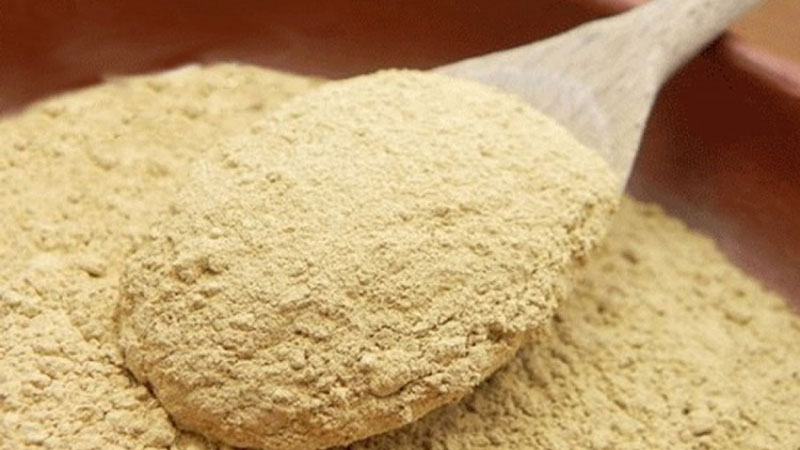 Make Organic Dish Soap from Rice Bran
Make Organic Dish Soap from Rice Bran
Ingredients
- 2 – 3 teaspoons of rice bran
- 200 – 300ml of cold water
Instructions
Store the rice bran in a glass or plastic jar after cleaning and sun-drying it. When it’s time to wash dirty dishes, simply mix 200 – 300ml of water with 2 to 3 teaspoons of rice bran and use it. This mixture has a pleasant rice aroma and won’t irritate your skin.
2 Make Organic Dish Soap from Flour, Vinegar, and Coffee
Don’t underestimate the power of combining flour, vinegar, and coffee to create an organic dishwashing liquid. Coffee’s distinctive aroma makes it an excellent odor neutralizer. Additionally, flour is great for polishing metals, leaving your pots and pans sparkling clean.
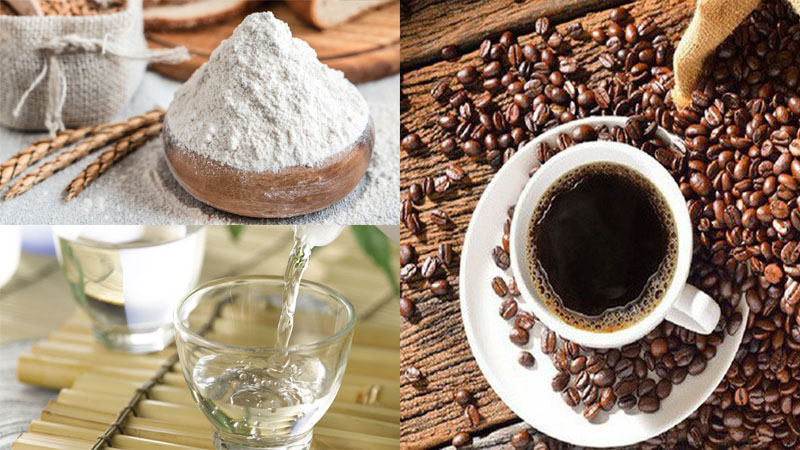 Make Organic Dish Soap from Flour, Vinegar, and Coffee
Make Organic Dish Soap from Flour, Vinegar, and Coffee
Ingredients
- 200g of flour
- 160ml of vinegar
- 30ml of coffee extract (concentrated)
- 30gr of microbial yeast
- A container, preferably a glass bottle with a spout
Instructions
Mix everything and store it in a glass jar for future use. Keep the mixture in a cool, dark place, away from direct sunlight.
3 Make Organic Dish Soap from Tangerines (Kumquats), Vinegar, and Salt
With easily accessible ingredients like tangerines, vinegar, and salt, you can create a completely natural, organic dishwashing liquid free from any additives. Each use will leave your dishes spotlessly clean and fragrant with the scent of tangerines.
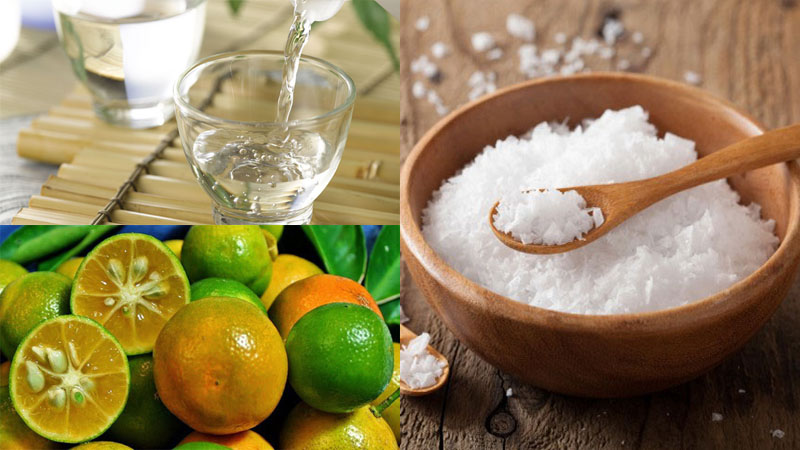 Make Organic Dish Soap from Tangerines, Vinegar, and Salt
Make Organic Dish Soap from Tangerines, Vinegar, and Salt
Ingredients
- 10 tangerines (kumquats) or 3 lemons
- 50ml of vinegar (preferably rice vinegar)
- 150gr of salt
- 250ml of cold water
Instructions
4 Make Organic Dish Soap from Lemongrass, Soapnuts, and Grapefruit Peel
Soapnuts are not just great for treating dandruff; they’re also excellent for surface cleaning. Combining soapnuts with lemongrass and grapefruit peel creates a powerful organic dishwashing liquid that cleans dishes without harming your hands.
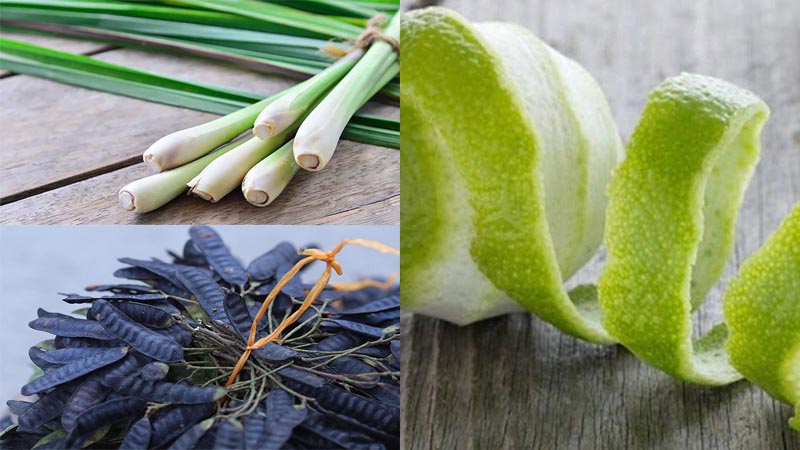 Make Organic Dish Soap from Lemongrass, Soapnuts, and Grapefruit Peel
Make Organic Dish Soap from Lemongrass, Soapnuts, and Grapefruit Peel
Ingredients:
- 6 stalks of lemongrass
- 200gr of soapnuts
- 500gr of fresh grapefruit peel
- 500ml of cold water
Instructions:
5 Make Organic Dish Soap from Star Fruit
Star fruit is rich in organic acids such as oxalic acid, tartaric acid, succinic acid, and citric acid, making it highly effective at removing stubborn grease from dishes, especially rust and iron stains from metal utensils.
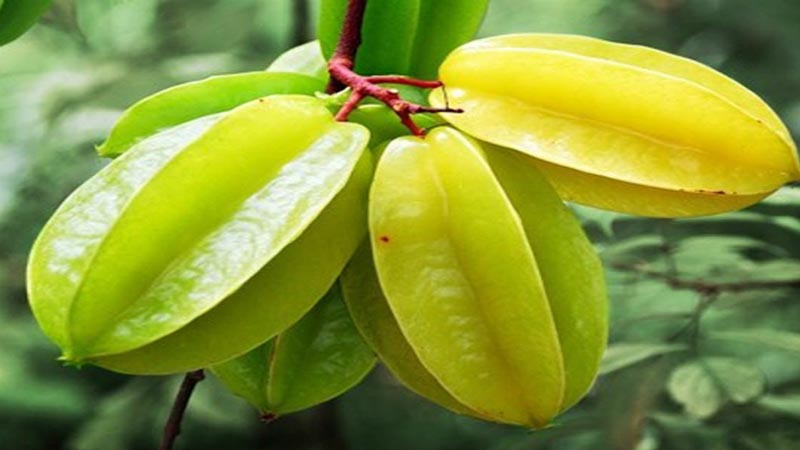 Make Organic Dish Soap from Star Fruit
Make Organic Dish Soap from Star Fruit
Ingredients
- 500gr of ripe star fruit (use older fruit, not too young)
- 250ml of cold water
Instructions
6 Make Organic Dish Soap from Orange Peels
With just a little time and effort, you can make a natural, safe, and pleasant-smelling dishwashing liquid using orange peels. However, since the mixture doesn’t contain preservatives, it’s best to use it within 1-2 weeks.
 Make Organic Dish Soap from Orange Peels
Make Organic Dish Soap from Orange Peels
Ingredients
- 20gr of dried orange peels
- 15ml of alcohol
- 500ml of cold water
Instructions
These 6 methods showcase how to create natural, organic products from easily accessible ingredients to protect your and your family’s health. We wish you success.
Exploring the Benefits of Rice Bran Powder Masks for Skin Whitening, Restoration, and Acne Prevention
Rice bran masks have been hailed by experts as an effective and safe option for providing nourishment to the skin, preventing acne, and achieving a healthy, luminous complexion. By supplying essential nutrients, these masks are able to restore and regenerate the skin, leading to a smoother and brighter appearance.
























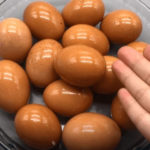
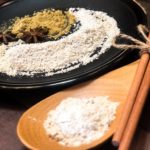

![[Guide] Troubleshooting Hard, Sticky, and Dry Rice](https://meo.tips/wp-content/uploads/2023/10/naucom-b_uipp-150x150.jpg)









